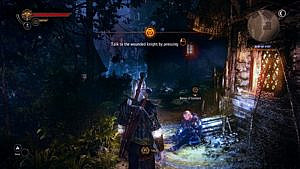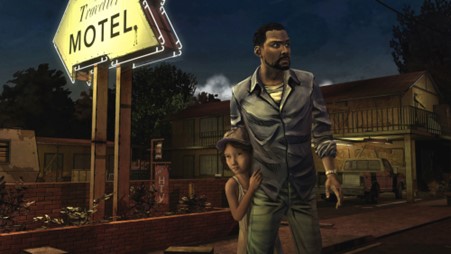Video games with various choices in dialog and moral actions have been noted to demonstrate different social-emotional skills, such as relationship management and social awareness. The choices made may contribute to developing the player’s social-emotional wellbeing, according to a qualitative study by Weimin Toh and David Kirschner, funded by the National University of Singapore. The study used grounded theories and study methods to investigate which social-emotional skills players demonstrate while playing games and how game design can affect how social-emotional skills are developed.
A theoretical model for social-emotional learning was created in order to investigate the player experience in games including “The Walking Dead Season 1” (TWD), “Bioshock”, “The Witcher 2” and “The Last of Us”. The games were not only chosen on the basis of the genres being familiar to the players, but also having possible scenarios of positive reinforcement techniques, options for moral choices, and role-playing elements that can reflect real-life identities and values.
From the games, it was noted that game designers could derive good learning principles to create scenarios that allow for multiple approaches for learners to understand effective ways to resolve stressful real-life situations, especially using positive reinforcement and indirect suggestion to influence problem resolutions in a positive way. These scenarios could be projected or played in a classroom setting, allowing students to discuss the actions or the perspectives of the characters. The events can also be discussed as to figure out what is happening, what kind of emotions are in play, how the emotions affect the students and what the students consider to be good actions for resolving similar situations in real life.

Social awareness and self-management examples can be found in The Witcher 2 from having conversations with relevant background information affect the decisions the player makes. These in turn cause effects later on in the game. Relationship management and prosocial behavior designs were found in Bioshock and The Witcher 2. The former has moral choices in guiding characters to safety, while the latter has cases of assisting and comforting other characters, which resulted in favorable consequences later on.
Emotional regulation and optimism designs were most seen in TWD posed as scenarios that can show how to act appropriately through positive reinforcement to deal with, for example, a hostage crisis, so that no character dies. Problem-solving can also be applied to affect the mood of a companion character to stay optimistic in dire situations.
The participants all had at least 6 years of experience playing games, and different platforms and games were used for a variety of choice. Further studies on the matter suggested to include a larger and more diverse sample size, including more women, adolescents, children, or people with disabilities. It was also noted that some actions taken in the game could’ve been affected by the observation situation, causing the participants to act in more morally appropriate ways. One participant also refused to elaborate to some specific actions due to possible privacy concerns.
For the study, a theoretical model was developed by integrating social-emotional concepts into three subcategories: behavioral self-regulation, cognitive self-regulation, and emotional self-regulation. The subcategories themselves were developed using theoretical frameworks on social-emotional learning, psychological studies, and player experience. According to the study, video games have been found to promote emotional intelligence and contribute to the development of social well-being. In addition, providing an area for players to train regulating negative emotions experienced in the game world, a more unified theoretical model for social-emotional learning concepts could be adapted and used for future studies.
Original article: Toh, W., & Kirschner, D. (2023). Developing social-emotional concepts for learning with video games. Computers and Education, 194, 104708-.
Photos:
Promo picture from the game The Walking Dead (Telltale Games 2012)
https://store.steampowered.com/app/207610/The_Walking_Dead/
Promo picture from the game The Witcher 2: Assassins of Kings (CD PROJEKT RED 2011)
https://store.steampowered.com/app/20920/The_Witcher_2_Assassins_of_Kings_Enhanced_Edition/
